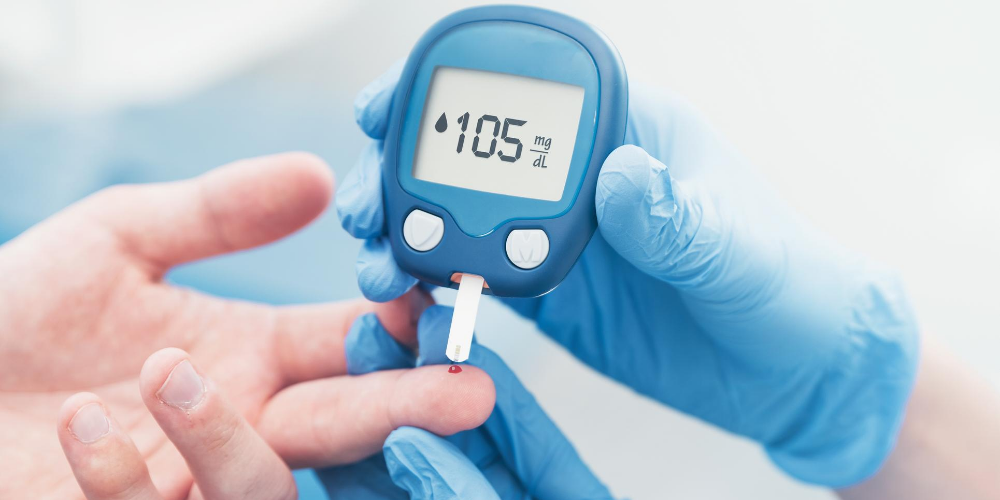Alpha-Lipoic acid (ALA) is a natural substance in the body and in food sources, which is considered to be a powerful antioxidant that helps to rejuvenate cells and give many health benefits. The human body can synthesize ALA itself, but with low levels and concentrations, it is not enough to exert its effects. Moreover, this self-synthesis process decreases with time. To ensure adequate ALA content, people must use foods rich in ALA or in food. Eat red meat, heart, liver, spinach, Dutch head, radish, etc. Otherwise, you can take 25 – 50 mg of ALA supplements daily for the best effect.


1. Top benefits of Alpha-Lipoic Acid
1.1 Benefits of Alpha-Lipoic acid: Strong anti-oxidant


✅ Alpha-lipoic acid is both water and fat-soluble, allowing it to work in every cell or tissue in the body. Meanwhile, most other antioxidants are water-soluble or fat-soluble. For example, vitamin C is only soluble in water, while vitamin E is only soluble in fat. Furthermore, alpha-lipoic acid increases the levels of other antioxidants, such as vitamin C and glutathione. The antioxidant properties of alpha-lipoic acid have been linked to benefits like reducing blood sugar, reducing inflammation, slowing skin aging, and improving nerve function.
✅ Research in recent years has shown that applying creams containing 5% ALA will reduce wrinkles and fine lines due to sun damage. In addition, using skincare products containing Alpha Lipoic acid and other ingredients also helps improve elasticity, reduce wrinkles, and roughness of aging skin.
1.2 Benefits of Alpha-Lipoic Acid: Weight loss


✅ Research has shown that alpha-lipoic acid can affect weight loss in many ways. It can reduce the activity of AMP-activated enzyme kinase (AMPK), located in the hypothalamus of your brain. When AMPK is more active, it can increase feelings of hunger. On the other hand, inhibiting AMPK activity can increase the number of calories your body burns at rest. Therefore using alpha-lipoic acid burns more calories.
✅ However, human studies show that alpha-lipoic acid has only a slight effect on weight loss. An analysis of 12 studies found that those taking alpha-lipoic acid supplements lost an average of 1.52 pounds (0.69 kg) compared to those who took a placebo in an average of 14 weeks. In the same analysis, alpha-lipoic acid did not significantly affect waist circumference. Therefore, if you want to use ALA for your weight loss regime, you should consult your doctor for the best effect.
1.3 Benefits of Alpha-Lipoic Acid: Support treatment of diabetes


✅ Alpha-lipoic acid has become popular as a potential aid for diabetes, as it has been shown to reduce blood sugar levels in both animals and humans. Studies in people with metabolic syndrome have shown that it can reduce insulin resistance and fasting hypoglycemia and HbA1c levels. Scientists believe alpha-lipoic acid helps lower blood sugar by promoting processes that can eliminate fat build up in muscle cells, which makes insulin less effective.
✅ Moreover, alpha-lipoic acid may reduce the risk of diabetes complications. It has been shown to reduce symptoms of nerve damage and reduce the risk of diabetic retinopathy (eye damage) that can occur with poorly controlled diabetes. It is believed that this effect is due to the powerful antioxidant properties of alpha-lipoic acid. Research shows that taking 600-1800 mg of ALA or intravenous will improve the symptoms of nerve damage in people with diabetes, including burning, pain, and numbness in the legs or arms. However, it is necessary to continue treatment for 3-5 weeks for the symptoms to improve, if used in lower doses, Alpha Lipoic acid will not work.
✅ Although alpha-lipoic acid has been shown to support blood sugar control, it is not considered a complete treatment for diabetes. If you have diabetes and want to try alpha-lipoic acid, it’s best to talk to your doctor first, as it may interact with your medication.
1.4 Benefits of Alpha-Lipoic Acid: Other benefits


✅ Dementia: Dementia is a common concern of older people. It is believed that damage caused by oxidative stress plays an important role in dementia. Because alpha-lipoic acid is a powerful antioxidant, studies have examined the ability to slow the progression of disorders characterized by dementia, such as Alzheimer’s disease. Both human and laboratory studies have shown that alpha-lipoic acid can slow the progression of Alzheimer’s disease by neutralizing free radicals and inhibiting inflammation. However, more research is needed before alpha-lipoic acid can be recommended.
✅ Reduced risk of heart disease: Studies have shown that the antioxidant properties of alpha-lipoic acid may reduce the number of risk factors for heart disease.
- First, the antioxidant properties allow alpha-lipoic acid to neutralize free radicals and reduce oxidative stress, which is linked to damage that can increase the risk of heart disease.
- Secondly, it has been shown to improve endothelial dysfunction – a condition in which blood vessels cannot dilate properly, which also increases the risk of heart attack and stroke.
- Furthermore, a review of studies suggests that alpha-lipoic acid supplementation reduces triglyceride levels and LDL (bad cholesterol) levels in adults with metabolic disease.
2. Foods that contain ALA


- Dark leafy greens: According to an Oregon State University study, dark leafy greens such as spinach and broccoli are foods that contain the highest amount of Alpha-lipoic acid.
- Peas and Brussels sprouts: In addition to the aforementioned dark leafy vegetables, Alpha lipoic acid is also found in Brussels sprouts and vegetables. These foods also add amounts of vitamin C, K, and soluble fiber which is good for health.
- Tomatoes: In addition to Alpha lipoic acid, tomatoes also provide you with other antioxidants such as vitamin C, beta carotene, lycopene, and alpha-lipoic acid, forming a solid antioxidant network to prevent diseases.
- Rice bran: Tested by the United States Department of Agriculture, rice bran is a good source of vitamins, soluble fiber, and especially alpha-lipoic acid that helps fight free radicals in the body. Therefore, rice bran is considered one of the great superfoods.
- Foods of animal origin: Although fruits and vegetables are one of the best sources of Alpha-lipoic acid, according to the University of Maryland Medical Center, red meat and organs such as kidneys, liver and heart, beef brains are also great sources of alpha-lipoic acid that you can add in moderation to make your menu rich and varied.
3. Notes when using Alpha-Lipoic Acid
- ALA can cause allergies in some people.
- ALA works to lower blood sugar. So be careful when using it.
- Pregnant and lactating women (Alpha-lipoic acid can pass into breast milk and harm the baby) and children should consult a doctor to find the right dose before use.
Recommended for you
🎁 Doctor’s Best Alpha-Lipoic Acid, Promotes Healthy Blood Sugar


✅ DOCTOR’S BEST ALPHA-LIPOIC ACID (ALA) – plays an important role in the metabolism of glucose that produces cellular energy in the body. ALA is naturally occurring and functions as an antioxidant throughout the body that helps regenerate other antioxidants such as vitamin C, vitamin E, and glutathione. ALA helps support the body’s potential in buffering free radicals for overall well-being. Directions: Take 1 or 2 capsules daily, or as recommended by a nutritionally-informed physician. Take with or without food.






Leave a Reply